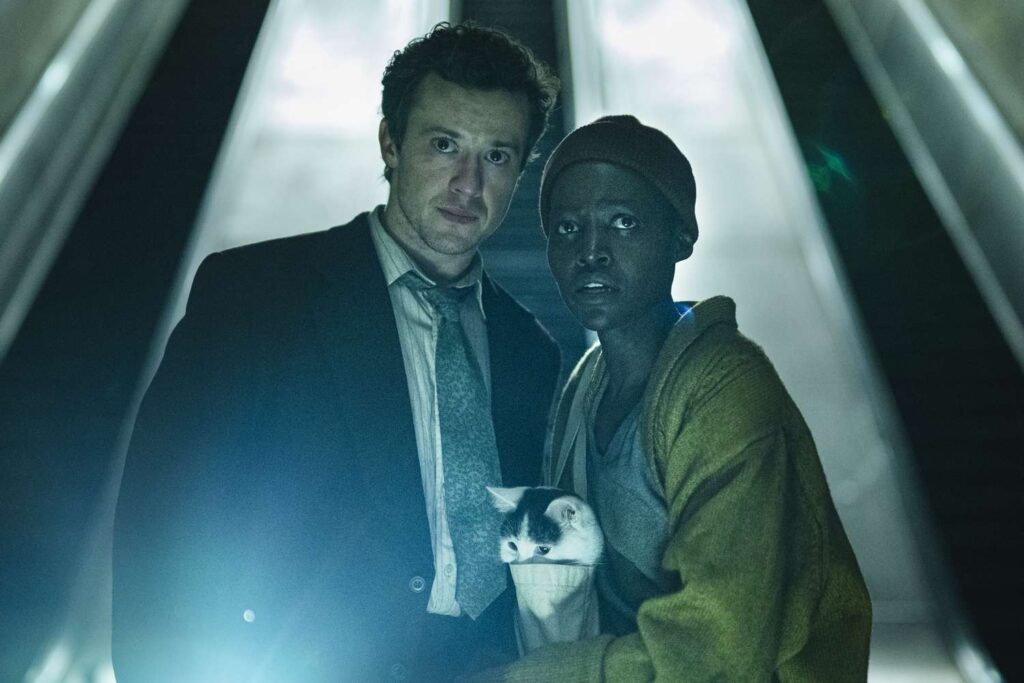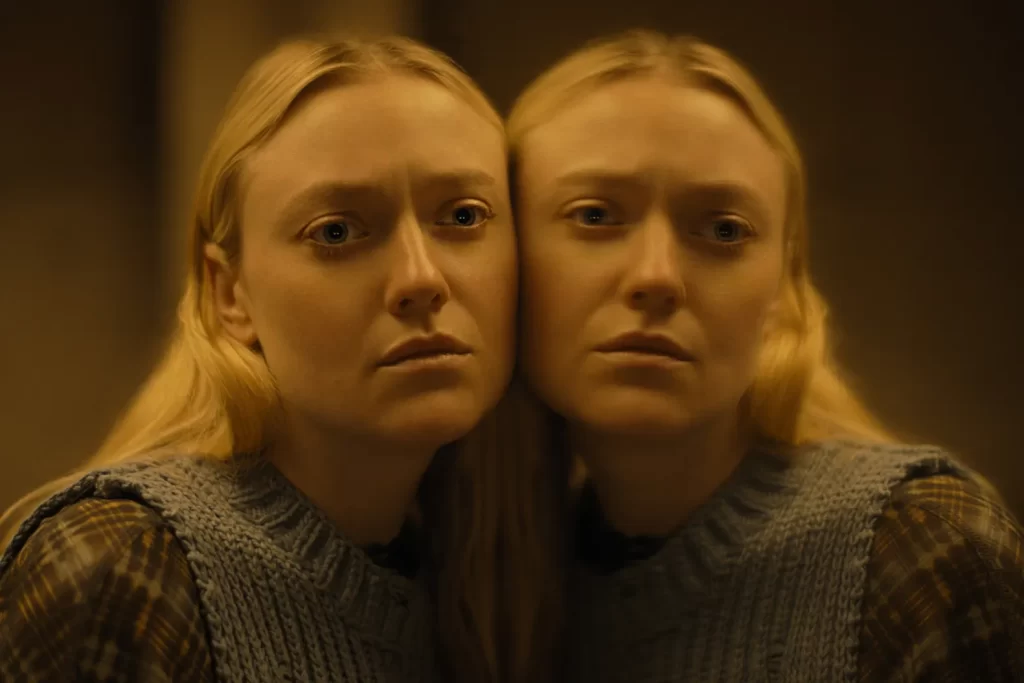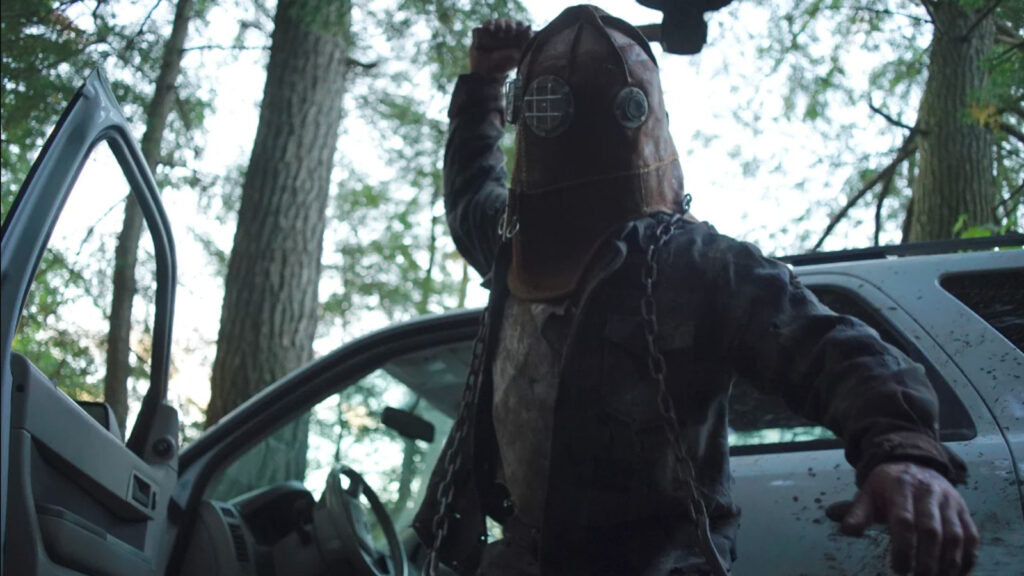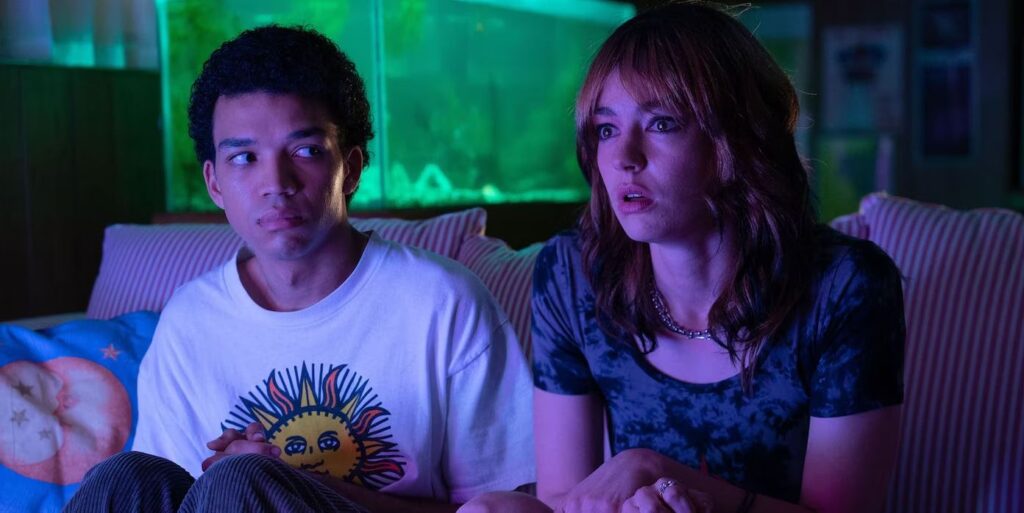MaXXXine: Body Trouble, But Dressed to Thrill
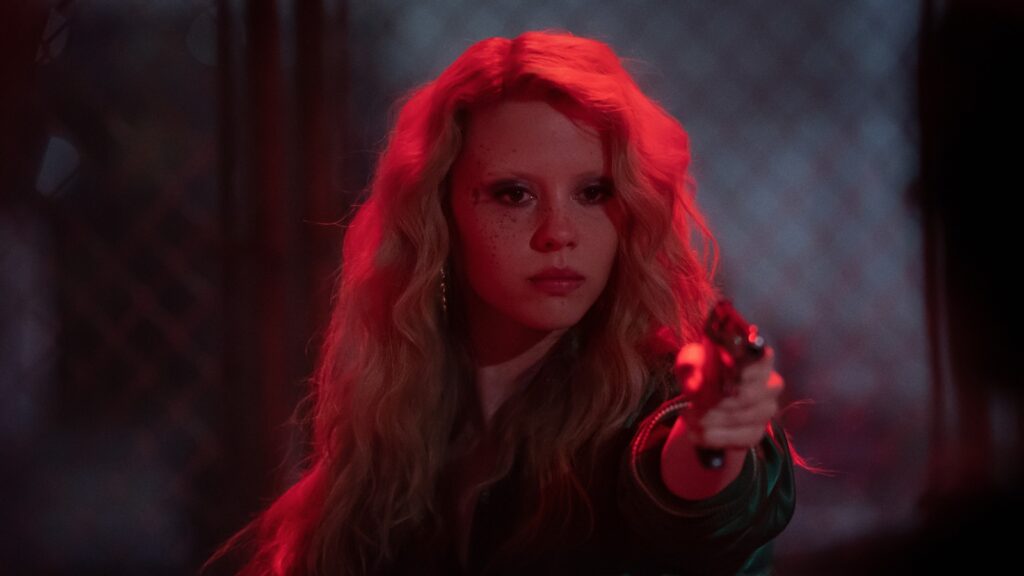
A sweaty and methodical build-up followed by a burst of spurting fluids—am I describing a horror movie, or a porno? The two genres collide in MaXXXine, though without the satisfactory release you might hope for. Sure, there is a bit of bare flesh on display and a good deal of blood, but surprisingly little in the way of tension or excitement. Sexploitation homages shouldn’t feel this neutered.
MaXXXine supplies enough visual style to make it watchable, but it’s still a disappointment, especially when you consider its genealogy. It’s the third consecutive collaboration between writer-director Ti West and actor Mia Goth, who two years ago gave us X, a snappy slasher that subtly interrogated the puritanical attitudes of the skin-flick ’70s while also delivering some humdinger set pieces. They followed that with Pearl, a cheeky prequel which excavated the origins of X’s geriatric villainess and provided Goth (who co-wrote it) with the monologue of a lifetime. MaXXXine flashes forward to the more recent past, bringing back Goth’s now-titular character from X along with a few tedious plot points. Set in 1985, the action has shifted from the clammy farmland of rural Texas to the glitzy neon of the Hollywood Hills, but the thematic preoccupations are similar to those of X. Once again, West is examining retrograde gender norms surrounding sex and cinema, imagining a lurid universe that blurs the line between on-screen indecency and real-world brutality. Read More

